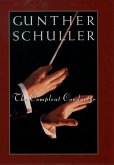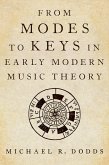Organized Time is the first attempt to unite theories of harmony, rhythm and meter, and form under a common idea of structured time. Building off of recent advances in music theory in essential subfields-rhythmic theory, tonal structure, and the theory of musical form--author Jason Yust demonstrates that tonal music exhibits similar hierarchical organization in each of these dimensions. Yust develops a network model for temporal structure with an application of mathematical graph theory, which leads ultimately to musical applications of a multi-dimensional polytope called the associahedron. A wealth of analytical examples includes not only the familiar tonal canon-J.S. Bach, Mozart, Schumann--but also lesser known masters of the musical Enlightenment such as C.P.E. and J.C. Bach, Boccherini, and Johann Gottlieb Graun. Yust's approach has wide-ranging ramifications across music theory, enabling new approaches to musical closure, hypermeter, formal function, syncopation, and rhythmic dissonance, as well as historical observations about the development of sonata form and the innovations of Haydn and Beethoven. Making a forceful argument for the independence of musical modalities and for a multivalent approach to music analysis, Organized Time establishes the aesthetic importance of structural disjunction, the conflict of structure in different modalities, in numerous analytical contexts.
Dieser Download kann aus rechtlichen Gründen nur mit Rechnungsadresse in A, B, BG, CY, CZ, D, DK, EW, E, FIN, F, GR, HR, H, IRL, I, LT, L, LR, M, NL, PL, P, R, S, SLO, SK ausgeliefert werden.









